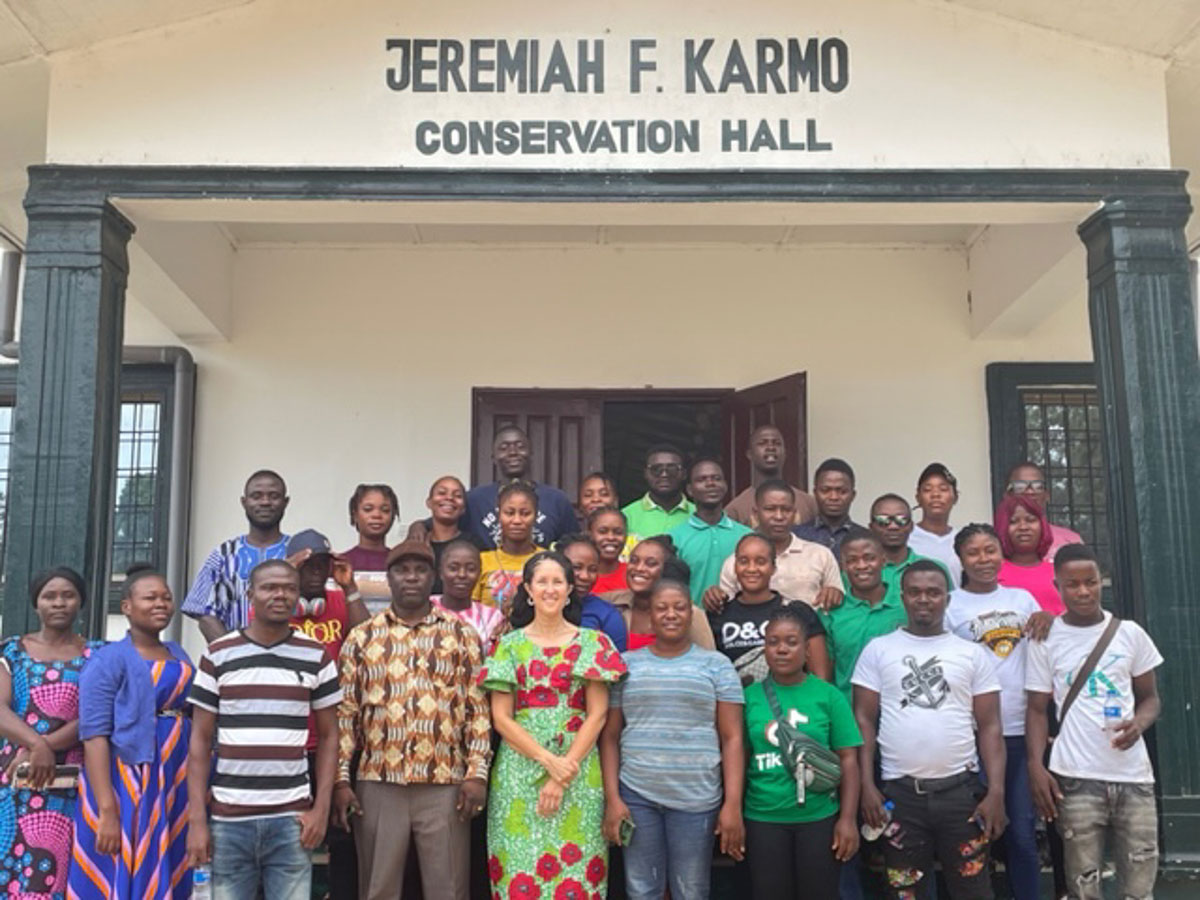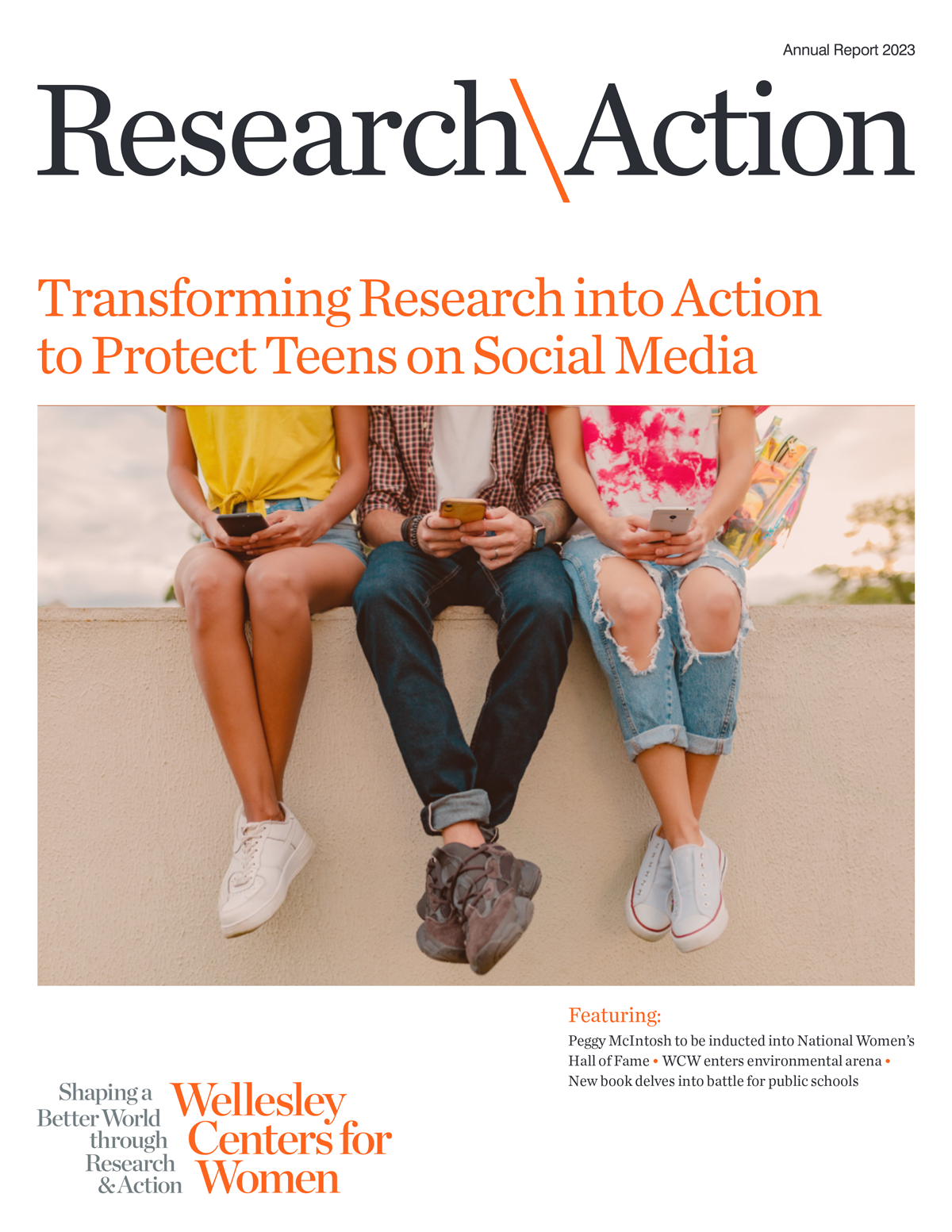 Maparyan (center) with student interns from Liberia’s Forestry Training Institute
Maparyan (center) with student interns from Liberia’s Forestry Training Institute
The connection between climate change and gender equality may not be immediately obvious, but the two are intricately linked. Climate change often leads to social, economic, and political disasters—like migration, violent extremism, resource wars, mental health crises, and gender-based violence—that negatively affect the lives of women and girls.
That’s why WCW is entering the environmental arena with a project that aims to protect one of Africa’s most important rainforests.
In February, the U.S. Agency for International Development (USAID) awarded $5 million to a team of eight institutions, led by the University of Georgia and including WCW, for the implementation of a program called Higher Education Conservation Activity (HECA) in the Republic of Liberia.
The country’s rainforests account for roughly half of the remaining rainforests in West Africa, and over many years they have been degraded by unsustainable forestry practices, land conversion, and other pressures. HECA aims to strengthen forest management and conservation in Liberia through education, training, and technical assistance.
Climate change is one of the most urgent global concerns of our time, and we know that its effects are gendered.
WCW received a $1.13 million subaward to lead HECA’s gender equality and social inclusion strategy. Goals include the involvement of more women in forestry education and the forestry profession in Liberia; greater inclusiveness of people from forest-dwelling communities; sensitizing youth to forestry as a career path; and more inclusion of people with disabilities in forestry.
“HECA is built on the premise that climate action must address broader social justice concerns to be successful,” said WCW Executive Director Layli Maparyan, Ph.D., who has worked in Liberia since 2009 and is leading WCW’s part of the project. “When rainforests disappear, these groups of people are directly affected, so they must be part of the solution.”
HECA will include four landscape studies, each focused on one of the groups outlined in the social inclusion strategy. In the program’s first year, Maparyan and her team studied women and forest dwellers to better understand how to more effectively involve them in Liberia’s forest management and conservation. In the second year, the researchers will turn their attention to youth and people with disabilities.
In order to complete these studies, Maparyan and her team trained students from the Forestry Training Institute, the only technical and vocational education and training institution dedicated to forestry in Liberia. After learning data collection methods, the students were dispatched to their home communities, where they conducted focus groups—ultimately gathering information from 1,354 people in 25 villages and towns in 9 Liberian counties.
 Students from the Forestry Training InstituteThis data, as well as data collected in the next wave of research, will inform the development of HECA programming that increases gender equality and social inclusion in forestry, biodiversity, and conservation education and in its workforce. A summer intern from Liberia and several Wellesley College students are assisting with the project as well.
Students from the Forestry Training InstituteThis data, as well as data collected in the next wave of research, will inform the development of HECA programming that increases gender equality and social inclusion in forestry, biodiversity, and conservation education and in its workforce. A summer intern from Liberia and several Wellesley College students are assisting with the project as well.
“Climate change is one of the most urgent global concerns of our time, and we know that its effects are gendered,” said Maparyan. “HECA gives WCW a defined role in work that is solidly environmentally focused, with a strong action component. We are living out our motto of shaping a better world through research and action in a new way.”


